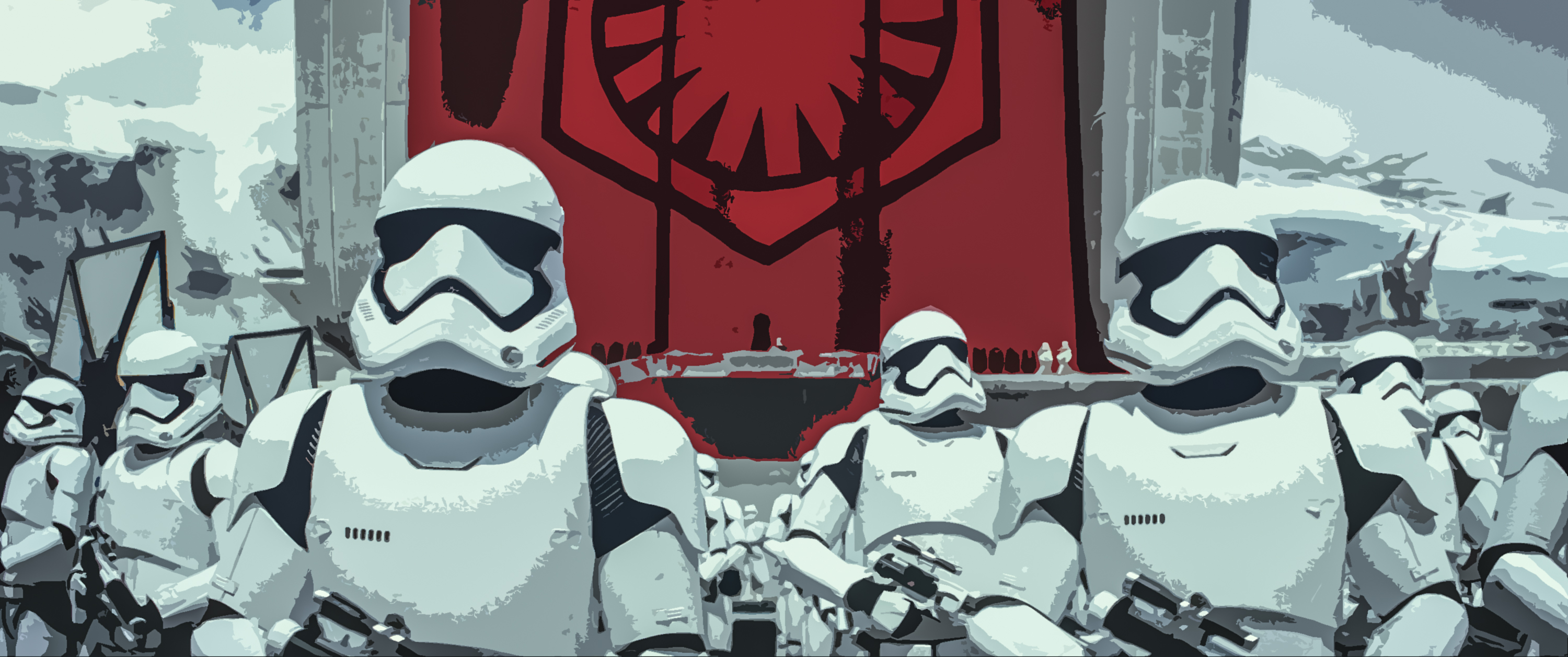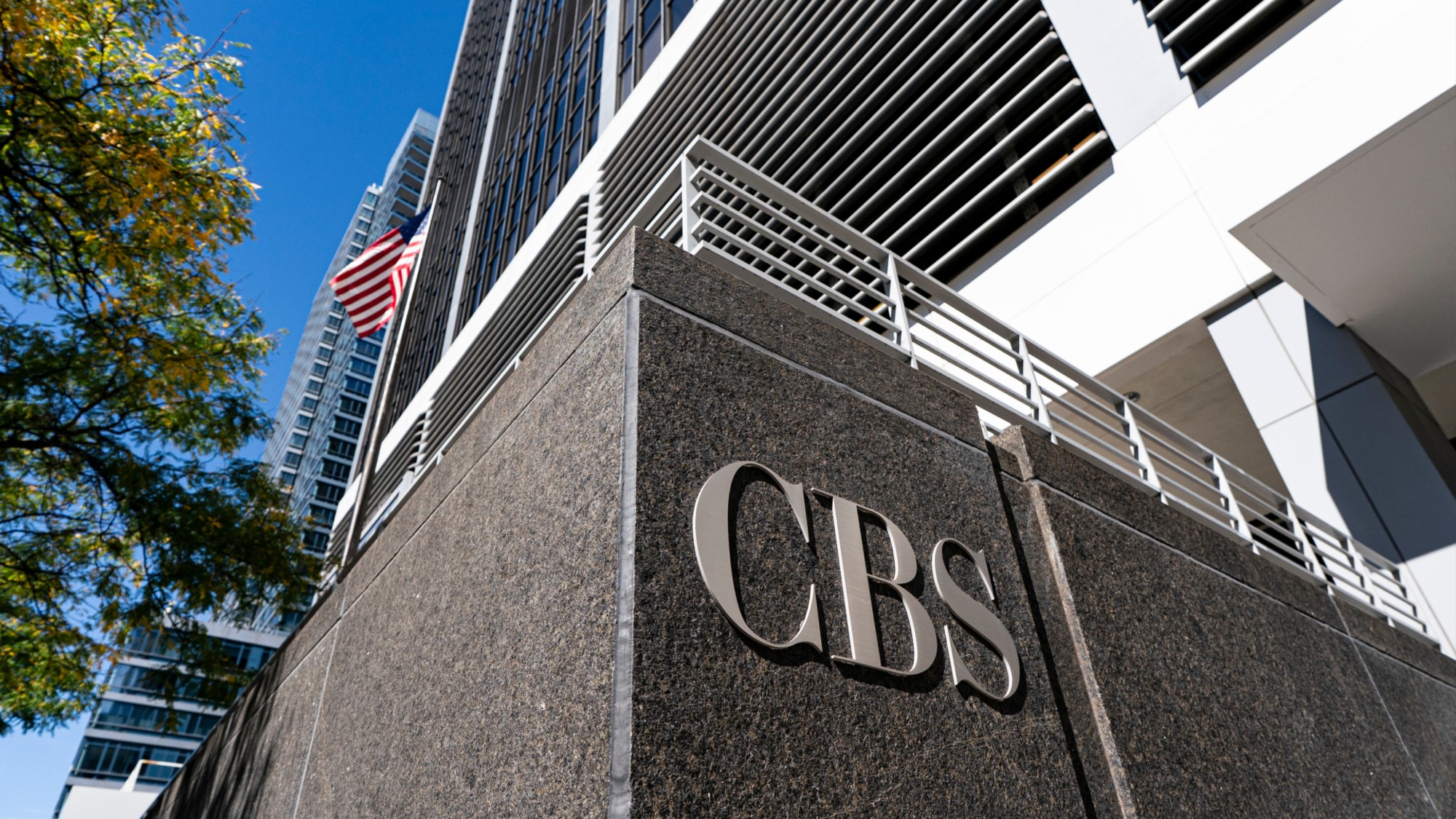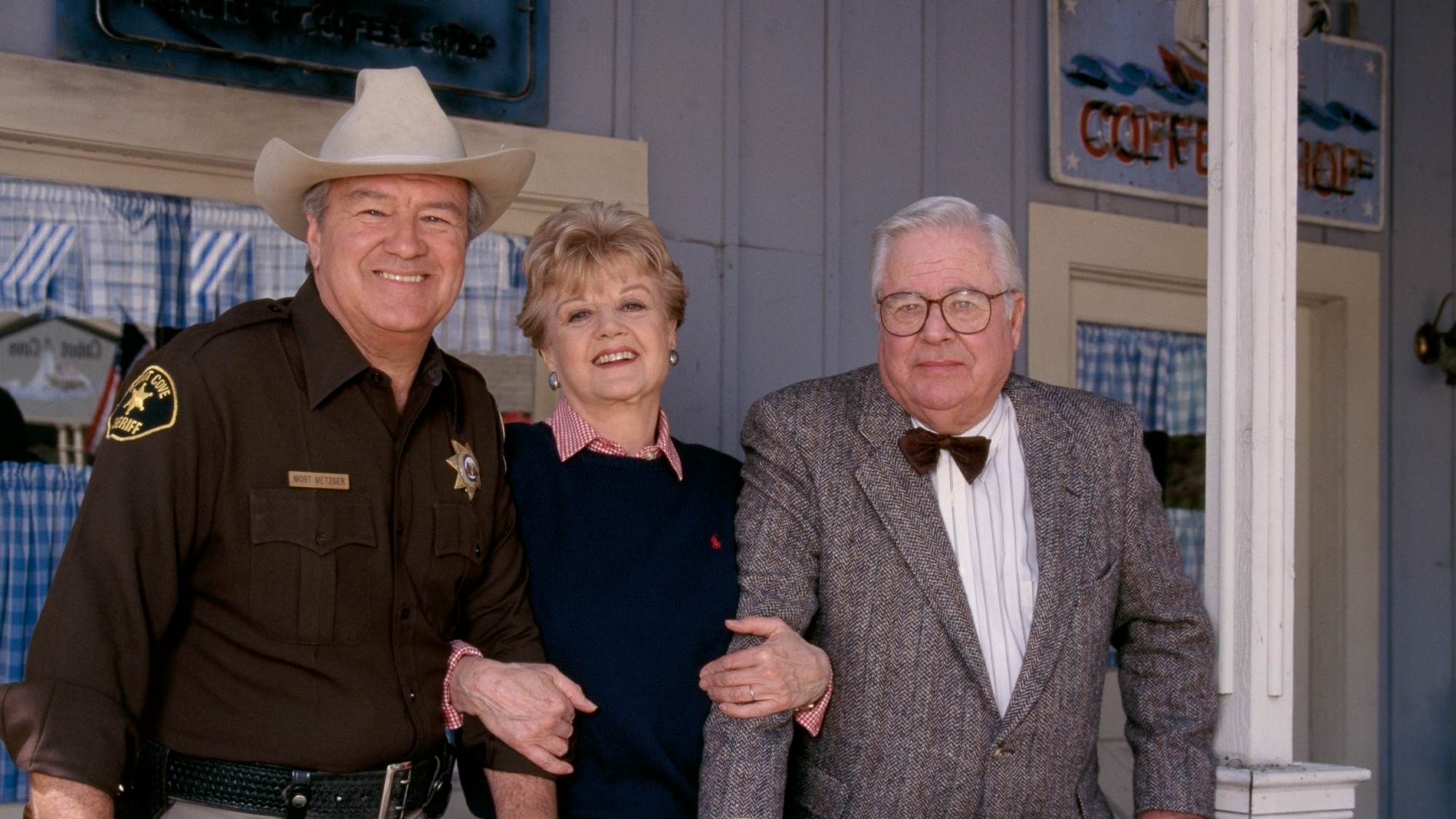Let's talk about the shocking twists of Star Wars: The Force Awakens
Eager to dissect the movie's biggest spoilers? Read on!


Spoiler alert! Do not read beyond this paragraph if you haven't seen Star Wars: The Force Awakens.
"Luke Skywalker has vanished."
That's the first sentence of the opening crawl for Star Wars: The Force Awakens — and, now that the Expanded Universe has been snuffed out of existence, the first concrete thing we learn about the ways the Star Wars universe has changed in the decades that have passed since Return of the Jedi. You can only imagine the hours of meetings and dozens of screenplay drafts that were devoted to getting that reintroduction to the Star Wars universe just right — and that line, so potent and evocative in the questions it raises, is the perfect jumping-off point for The Force Awakens, which thrillingly brings the franchise back to its former glory.
The Week
Escape your echo chamber. Get the facts behind the news, plus analysis from multiple perspectives.

Sign up for The Week's Free Newsletters
From our morning news briefing to a weekly Good News Newsletter, get the best of The Week delivered directly to your inbox.
From our morning news briefing to a weekly Good News Newsletter, get the best of The Week delivered directly to your inbox.
After more than a year of near-constant and feverish speculation, it's almost surreal to be able to write about The Force Awakens as anything but a hypothetical. Remember when the internet became obsessed with the possibility that Luke Skywalker had become a bad guy? Remember all those crazy theories about Darth Vader coming back to life as a clone? Remember when everybody was afraid director J.J. Abrams had killed off a beloved major character — like Luke, or Chewbacca, or Han Solo?
Okay, okay, let's address the bantha in the room. Han Solo is dead. His murder — at the hands of the First Order's fearsome Kylo Ren (Adam Driver), who is also his son — is the centerpiece of the movie, both literally and thematically. It sets the stage for an emotionally fraught stunner of a lightsaber battle between Kylo Ren and Rey (Daisy Ridley), whose own connection to Han Solo hints at a grander mystery about her own parentage that will probably figure heavily into the sequels.
But Han Solo's death is also, in a larger sense, an important mission statement for the future of the Star Wars franchise as a whole. In past Star Wars films, beloved characters — Obi-Wan Kenobi, Yoda, even Anakin Skywalker — pretty much always returned as Force ghosts, which tempered the pain of their absence. In a similar moment in the original Star Wars, Obi-Wan warned Darth Vader he would become more powerful if he were struck down, then vanished as the lightsaber hit him — popping up again even before the movie ended.
Han Solo has no such power. We see him get gutted by Kylo Ren's lightsaber; we see his corpse fall. He won't be coming back. He's just dead, and both the heroes and the fans will need to adjust to a galaxy without him.
A free daily email with the biggest news stories of the day – and the best features from TheWeek.com
Fortunately, the new characters introduced in The Force Awakens are as rich with potential as the protagonists of the original trilogy. Kudos to the film's creative team for introducing no fewer than three major heroes who feel instantly organic to the Star Wars universe: Rey, Finn (John Boyega), and Poe Dameron (Oscar Isaac). (BB-8, the droid that fills the hole left by the largely absent R2-D2, should also be singled out for special praise.) All this new blood adds freshness and vibrancy that keeps the movie zooming forward, and keeps us invested in the characters' successes and failures. One of my favorite things about the Star Wars universe is that it's a place in which the heroes actually celebrate their victories; the gleeful whoops that our heroes let out after each triumph are still infectious.
But all that new energy is balanced by a reverence for the franchise's history. It's been more than 30 years since Return of the Jedi was released, and Harrison Ford, Carrie Fisher, and Mark Hamill have aged accordingly (as has the Millennium Falcon). I didn't expect The Force Awakens to remind me of Boyhood, but there's something similarly moving about seeing these characters who have aged, in real time, on the big screen. Director J.J. Abrams is an avowed Star Wars fan, and he's smart enough to get out of the way and let the franchise's history speak for itself.
Of course, the fit isn't always so elegant. At times, the need to shoehorn information about the aftermath of the original trilogy occasionally bogs down The Force Awakens. In the time since we left Han Solo and Leia in Return of the Jedi, we learn, they (1) had a kid, (2) sent him to be trained with Luke, (3) watched him turn to the Dark Side, and (4) split up in the wake of the trauma. That's a lot of information to be doled out via exposition, and while the convoluted backstory is necessary to set up The Force Awakens' central conflict, it hardly stacks up against the simple power of Han Solo and Leia staring wordlessly at each other while John Williams' immortal "Love Theme" plays.
Given the Star Wars franchise's (arguably overstated) fixation on the mythological hero's journey, it's no surprise that The Force Awakens openly recalls the original Star Wars, relying on many of the same basic plot beats. In the broadest strokes, the structure of The Force Awakens could hardly resemble the original Star Wars more: secret information stashed away on a droid, an extended interval on a desert planet, a world-destroying laser cruelly wielded by the villains, and a breathless battle, held both within and without the enemy's base, to destroy it once and for all. Leia has become a Mon Mothma-esque leader. Han Solo, dying, becomes the film's Obi-Wan. Rey is the film's Luke, and Luke himself seems poised to train her in the Force, as Yoda once trained him.
Most of all, the central conflict remains a family affair, albeit with the dynamics cleverly reversed; where Darth Vader was a father pitted against his son, Kylo Ren is a son pitted against his father. But where Luke's earnest appeals won Darth Vader back to the Light Side, Han Solo's attempt drives Kylo Ren, however reluctantly, further into the Dark. Throughout the movie, Kylo Ren is a fascinating wild card, prone to vicious and intimidating tantrums when things don't go his way. If Darth Vader was cold and distant and implacable, Kylo Ren is violent and tempestuous and unstable. Darth Vader did incredibly cruel things to disguise the small bit of good left in him; Kylo Ren does incredibly cruel things in an attempt to snuff it out altogether.
And where the original Star Wars ended on an unambiguous note of triumph, The Force Awakens tinges the Resistance's victory with melancholy. The First Order shows no signs of collapse. Han Solo is dead. Finn is gravely wounded, and Rey leaves him behind before he's even conscious.
If I'd had it my way, The Force Awakens would have ended with Rey taking off in the Millennium Falcon, saving the reintroduction of Luke Skywalker for Episode VIII. (There is, after all, something to be said for J.J. Abrams' mystery box.) It's one of the few flourishes that feels like a sop to modern blockbuster conventions — a moment designed to whet appetites for a movie that is years away.
But there's also an undeniable power in the film's final scene, as Rey reaches toward Luke — face lined with both age and pain — with the lightsaber he abandoned so long ago. Make no mistake: The Force Awakens has passed the torch, and she's not passing it back. She's simply reminding the old Jedi that he has both the obligation and the privilege to lend his wisdom to the new.
It's the same blend that makes The Force Awakens such a successful example of a new film that breathed life into a tired franchise — by both honoring it and expanding beyond it.
Scott Meslow is the entertainment editor for TheWeek.com. He has written about film and television at publications including The Atlantic, POLITICO Magazine, and Vulture.
-
 ‘A legacy news brand brings a visibility of its own’
‘A legacy news brand brings a visibility of its own’Instant Opinion Opinion, comment and editorials of the day
-
 8 of the best ‘cozy crime’ series of all time
8 of the best ‘cozy crime’ series of all timeThe Week Recommends Murder mysteries don’t necessarily have to make us miserable, and these shows have perfected a feel-good crime formula
-
 Youth revolts rattle Morocco as calls against corruption grow louder
Youth revolts rattle Morocco as calls against corruption grow louderTHE EXPLAINER Snowballing controversy over World Cup construction and civic services has become a serious threat to Morocco’s political stability
-
 Walter Isaacson's 'Elon Musk' can 'scarcely contain its subject'
Walter Isaacson's 'Elon Musk' can 'scarcely contain its subject'The latest biography on the elusive tech mogul is causing a stir among critics
-
 Welcome to the new TheWeek.com!
Welcome to the new TheWeek.com!The Explainer Please allow us to reintroduce ourselves
-
 The Oscars finale was a heartless disaster
The Oscars finale was a heartless disasterThe Explainer A calculated attempt at emotional manipulation goes very wrong
-
 Most awkward awards show ever?
Most awkward awards show ever?The Explainer The best, worst, and most shocking moments from a chaotic Golden Globes
-
 The possible silver lining to the Warner Bros. deal
The possible silver lining to the Warner Bros. dealThe Explainer Could what's terrible for theaters be good for creators?
-
 Jeffrey Wright is the new 'narrator voice'
Jeffrey Wright is the new 'narrator voice'The Explainer Move over, Sam Elliott and Morgan Freeman
-
 This week's literary events are the biggest award shows of 2020
This week's literary events are the biggest award shows of 2020feature So long, Oscar. Hello, Booker.
-
 What She Dies Tomorrow can teach us about our unshakable obsession with mortality
What She Dies Tomorrow can teach us about our unshakable obsession with mortalityThe Explainer This film isn't about the pandemic. But it can help viewers confront their fears about death.

